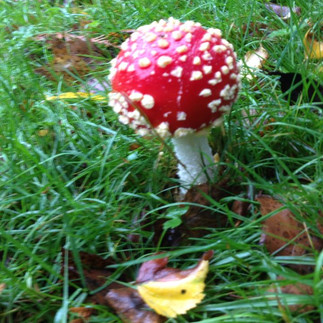BrightFrog Woodland
- David Stack
- Feb 11, 2022
- 2 min read
Updated: Jun 22, 2022
In 2014 BrightFrog bought a small woodland attached to our offices in the county of Berkshire.
The woodland was an ancient oak woodland and it can be traced back to Roman times. Unfortunately the woodland had been left unmanaged for decades and had fallen into decline. Invasive species such as Rhododendron had been left to run riot and in parts, where the tree canopies were so dense, little light penetrated the lower levels, stifling most of the flora. Local builders and fly tippers had also seized the opportunity to rid themselves of waste products, scattering the ground with rubble, glass and other materials from their projects. Nettles covered most of the ground and there was no way in (or out!)
And so began operation BrightFrog Woodland. In our spare time and with careful consultation, we began bringing the woodland back to life. We removed all the unwanted waste materials, we cut back and removed all the invasive species and we carefully opened up the canopy to allow natural sunlight to flood the woodland floor.
After the first year, our hard work was rewarded, when the woodland floor became awash with Native English Bluebells, stimulated by the light and favourable environment that we had created. More unseen wild flowers appeared, followed by butterflies, moths, insects, stag beetles and lots of smaller mammals. Rabbits, badgers and foxes are now common visitors to the woodland and we now have two sets of nesting birds of prey and strong colonies of bats, newts and other protected species.
And this morning........to top it all ..... a small herd of deer popped by to check out what all the fuss was about.
With busy lives, a business to run and a family to care for, we can only spend the odd hour or two here in the Woodland, but already we are seeing the difference.
To ensure the longevity of our Woodland, we have decided that for every new employee that BrightFrog takes on, we will plant a tree in their name. Not only will it help to reduce carbon emissions and pump out fresh oxygen, it will also provide a habitat for literally 1000's of species in years to come.























Comments